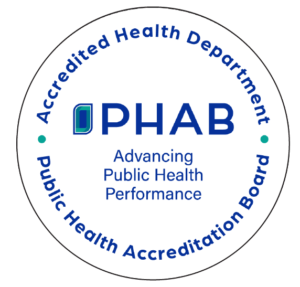What is rabies?
Rabies is a disease caused by a virus that may be found in wild animals, livestock, dogs, cats, bats and humans.
Is rabies found in Lake County?
Yes. Every year, Lake County has a few cases of rabies in bats. In the summer of 2004, raccoon-strain rabies was found for the first time in Lake County.
How can I get rabies?
People can get rabies by being bitten or scratched by an animal that has rabies. You can also get rabies if you get the saliva (spit) of an animal that has rabies in an open cut or bruise. If an animal bites you, it is VERY important that you wash the area of the bite with soap and water and tell your doctor right away. Some animals that commonly have rabies are raccoons, bats, foxes and skunks.
What do I do if I am bitten or scratched by an animal?
Wash the wound with soap and water. You should also see a doctor. Call your local health department to report the bite. In Lake County, call the Lake County General Health District at (440) 350-2543.
What are the symptoms of rabies?
It may take as long as six months for people to show symptoms after they get rabies, but people normally start to show symptoms one to three months after they come in contact with rabies. The early signs of rabies can be fever or headache, but this changes quickly to confusion, sleepiness, or agitation. Once someone with rabies infection starts having these symptoms, that person usually does not survive.
A rabid animal (animal that has rabies) may act differently from healthy animals. A wild animal may move slowly or act like they are tame. A pet that is usually friendly may snap at you or try to bite. Other symptoms are changes in the way an animal acts, sickness, not able to eat or drink, problems swallowing, and drooling.
How can I protect myself from rabies?
Keep yourself from coming into contact with animals that you do not know:
- Enjoy wild animals (raccoons, skunks, foxes and other animals that are not pets) from a distance. Do not feed or touch wild animals. Keep garbage cans covered so animals will not want to go to them.
- Never bring wild animals into your home. Do not try to nurse sick animals back to health. Call an animal rescue center for help.
- Teach children to never touch animals that they do not know, even if they are someone else’s pets or look like they are friendly. “Love your own. Leave other animals alone.”
- Seal up holes in your home to keep bats from coming inside. If you wake up and find a bat or find a bat around a child or someone who cannot care for themselves, call your local health department.
- If you travel to another country, be careful around dogs and other animals. Rabies is common in Asia, Africa and Latin America.
- Contact the Lake County General Health District if a bat has been found in your home.
How can I protect my pet from rabies?
Be a responsible pet owner:
- Make sure all pet dogs, cats and ferrets have their shots and that the shots are up to date. This will keep your pets from getting rabies and will protect you if an animal with rabies bites your pet.
- Watch your pets so they do not come in contact with wild animals. Go to a veterinarian right away if a wild animal bites your pet.
- Call your local animal control agencies if there are stray animals in your neighborhood.
- Spay or neuter your pets (get them “fixed”) so there are less unwanted pets that may not be taken care of correctly.
What is the rabies vaccine like?
The most effective rabies prevention is immediate thorough cleansing of the animal bite or scratch with large amounts of soap and water. You should see a doctor as soon as possible after you have been bitten or scratched by an animal. The doctor may order that you will then be given an injection (shot) of rabies immune globulin (your dose will depend on how much you weigh) and five doses of human rabies vaccine given in the arm on days 0, 3, 7, 14 and 28 after you have been bitten or scratched.
What is being done about the local rabies problem?
The Lake County General Health District has a state-sponsored Rabies program that includes the following activities:
- Education: Fact Sheets, newspaper articles, etc.;
- Surveillance: Testing animals that could have rabies;
- Oral Rabies Vaccine baiting project to vaccinate raccoons for rabies; and
- Low-Cost Rabies Vaccination Clinics for dogs, cats and ferrets throughout the year.
If you have questions on any of these activities, please call the Health District at (440) 350-2543 for more information.

